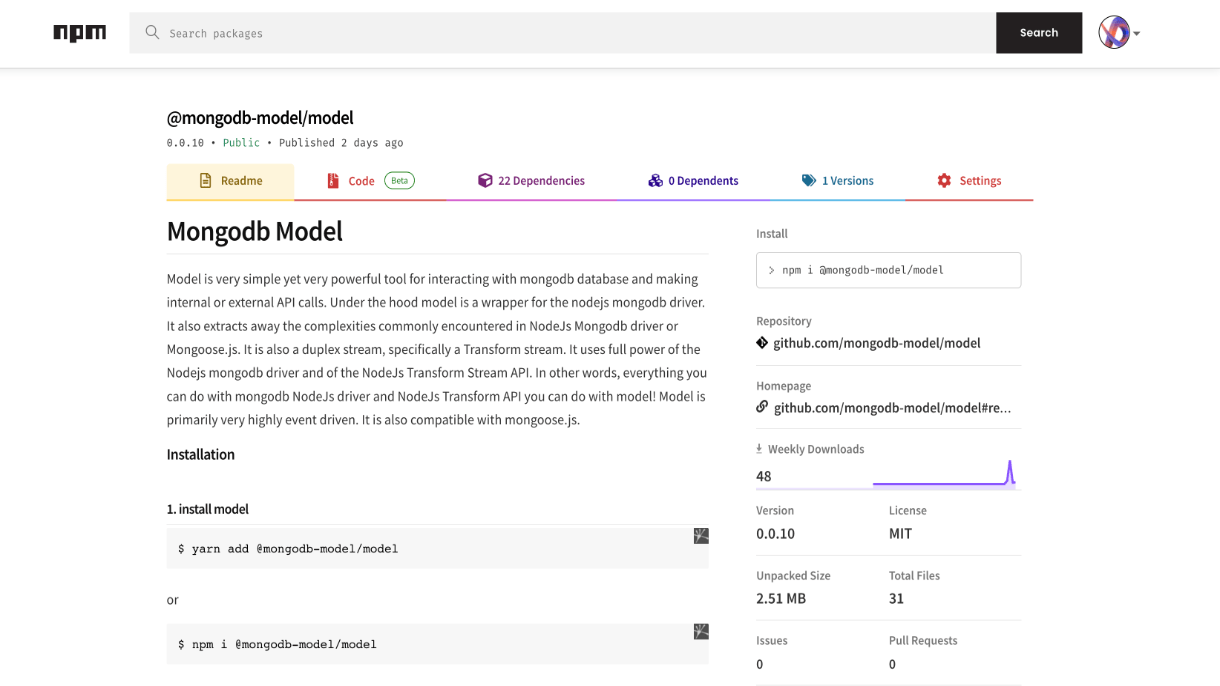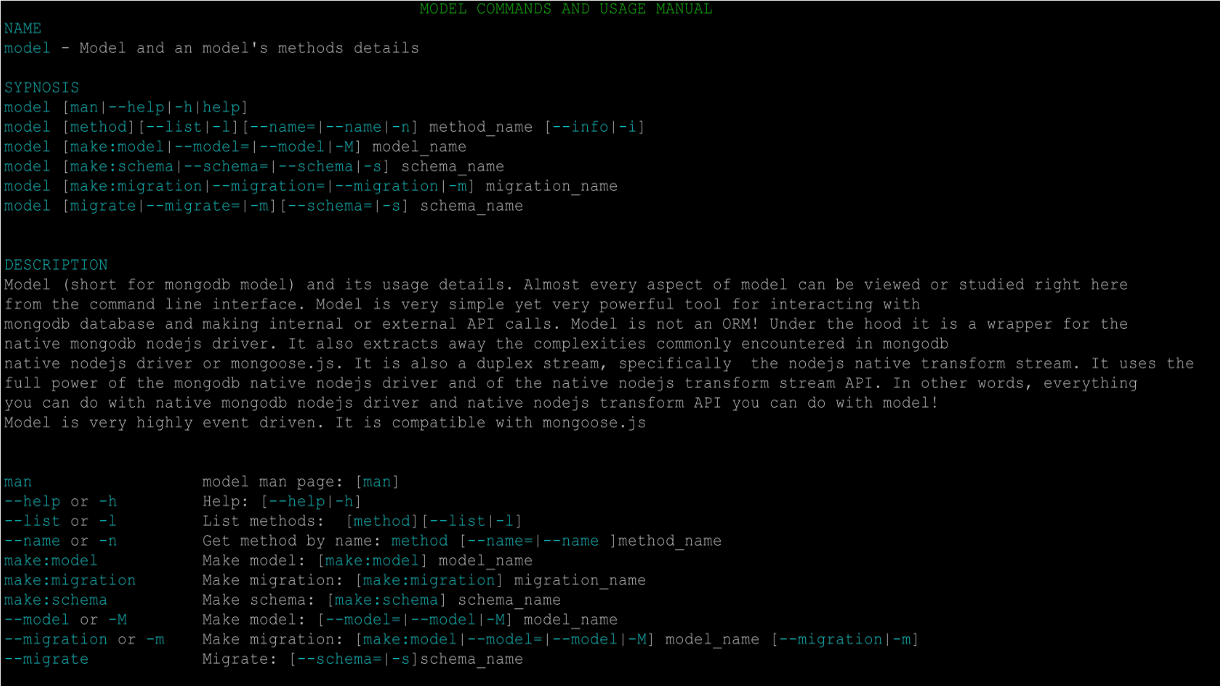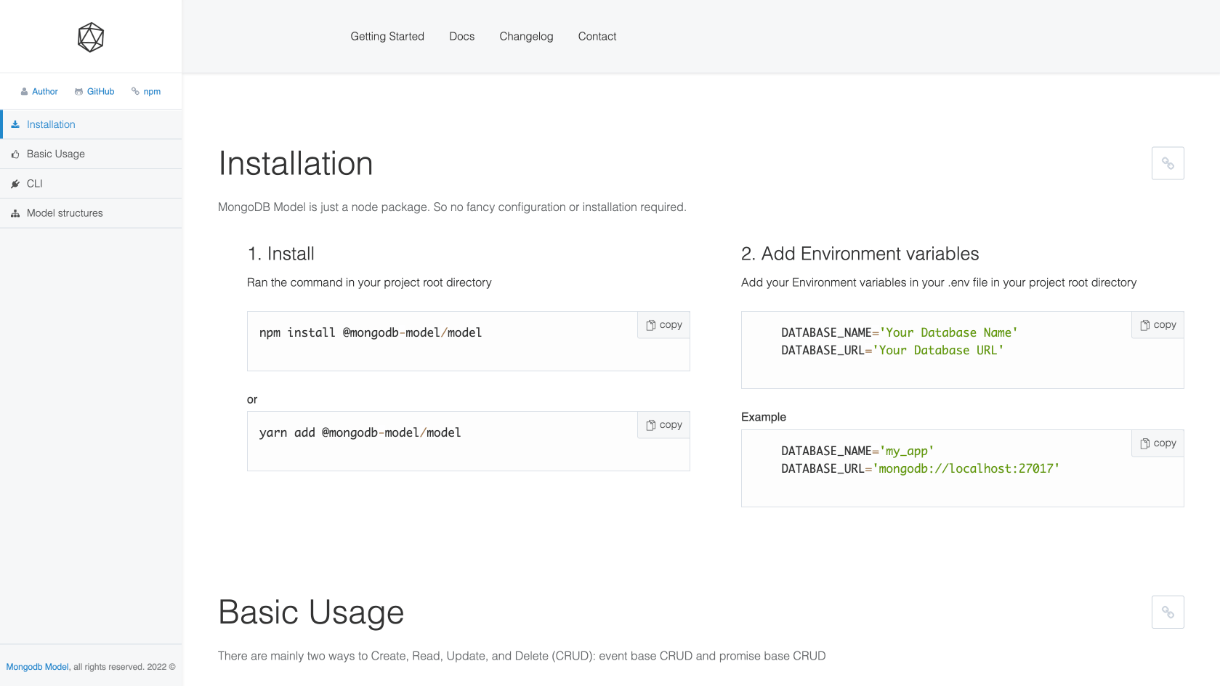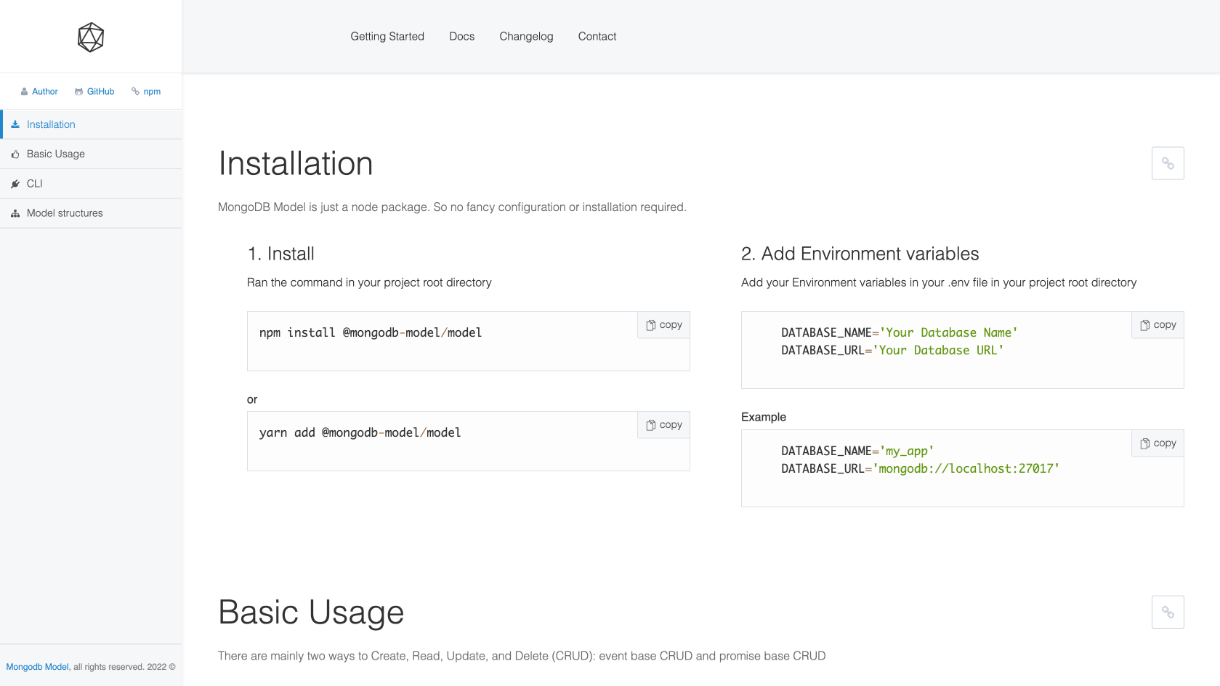



MongoDB Model
The “MongoDB Model” project is a custom framework or library developed in Node.js, designed to provide a powerful and tailored solution for interacting with MongoDB databases. By combining the raw capabilities of the MongoDB native driver with the more structured and abstracted features of MongooseJS, MongoDB Model offers developers a unique tool that enhances database interactions in complex applications. This framework bridges the gap between low-level operations and high-level abstractions, making it an essential resource for developers seeking to leverage the full potential of MongoDB in their Node.js projects.
- Client Open Source
- Service Node Package
- Date December 12, 2022
Purpose
The primary objective behind the development of MongoDB Model is to create a framework that balances the flexibility of raw MongoDB operations with the convenience and structure provided by Mongoose. MongoDB Model was developed to address the limitations of using either the MongoDB native driver or Mongoose alone, offering a more flexible, performance-optimized, and intuitive tool for managing MongoDB databases. This project aims to empower developers by providing them with a tool that is both easy to use and powerful enough to handle the complexities of modern database management, especially in large-scale applications where performance and flexibility are crucial.
Tech Stack
MongoDB Model leverages a robust and modern tech stack to achieve its goals. The key technologies and frameworks used in its development include:
- Node.js: The core runtime environment that powers the MongoDB Model framework, providing a non-blocking, event-driven architecture that is well-suited for building scalable applications.
- MongoDB Node.js Native Driver: Directly interfaces with MongoDB, allowing the framework to execute raw database operations with high performance and flexibility.
- MongooseJS: Used for schema validation and model-based data operations, adding structure and convenience to MongoDB interactions.
- Redis: Integrated for caching and performance optimization, particularly in scenarios involving high-volume data processing or real-time applications.
- Socket.io: Facilitates real-time, bi-directional communication between clients and servers, enhancing the framework’s capabilities in applications that require instant data updates.
- JavaScript (ES6+): The programming language used to develop the framework, taking advantage of modern JavaScript features such as async/await, promises, and ES modules.
- Object-Oriented Programming (OOP): Employed to create a modular and maintainable codebase, with reusable components and clear abstractions.
- Functional Programming: Used alongside OOP to provide concise, declarative code that is easier to test and debug, particularly in data transformation and manipulation tasks.
- – **Module-Driven Design Patterns:** Ensures that the framework is highly modular, allowing developers to easily extend or integrate MongoDB Model with other Node.js applications and services.
Outcomes
The MongoDB Model project has successfully evolved into a production-ready Node package, available for developers seeking a more efficient and flexible way to manage MongoDB databases in their Node.js applications. Key outcomes include:
- Successful Deployment: The framework has been deployed in various production environments, demonstrating its robustness and reliability in real-world applications.
- Performance Improvements: Users have reported significant improvements in performance, particularly in database query execution and data manipulation, when compared to using the MongoDB driver or Mongoose alone.
- Positive User Feedback: Developers have praised MongoDB Model for its intuitive API, modular design, and the balance it strikes between flexibility and structure. The framework has received positive reviews for making complex MongoDB operations more accessible and manageable.
- Milestones: The project has reached several important milestones, including the release of stable versions, integration with other popular Node.js libraries, and adoption by a growing community of developers.
Features
MongoDB Model offers a range of core features designed to enhance the developer experience and optimize MongoDB database interactions:
- Combining MongoDB Driver and MongooseJS: The framework utilizes the strengths of the MongoDB Node.js driver for direct and efficient database interactions while leveraging MongooseJS for schema validation and model-based data operations. This combination provides a unique balance of power and convenience.
- Custom Functionality: MongoDB Model adds custom methods and features that enhance the default behavior of both the MongoDB driver and Mongoose. These utilities simplify tasks such as querying, updating, and managing collections, allowing developers to perform complex operations with minimal code.
- Flexibility and Performance: The framework is designed to offer the flexibility of raw MongoDB operations while maintaining the performance benefits of using a well-optimized abstraction layer. This makes it ideal for applications where performance is critical, and where developers need fine-grained control over database interactions.
- Modular Design: MongoDB Model is structured in a highly modular way, allowing for easy extension and integration with other Node.js applications. The framework supports custom plugins or middleware, enabling developers to tailor the framework to specific project needs without compromising maintainability.
- Simplified Data Operations: The framework streamlines CRUD (Create, Read, Update, Delete) operations with MongoDB, offering a more intuitive API that will feel familiar to developers already accustomed to MongoDB or Mongoose. This simplification reduces the learning curve and accelerates development, making it easier to implement and maintain complex data models.
MongoDB Model stands as a powerful, flexible, and performance-optimized tool for Node.js developers working with MongoDB, providing the best of both worlds by combining the raw power of the MongoDB driver with the structured approach of Mongoose. This project not only simplifies database management but also enhances the overall efficiency and scalability of Node.js applications.